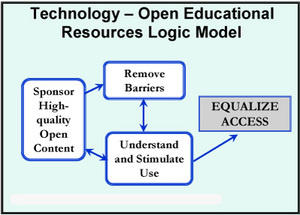
Image from LEX Report
Much of the discourse about e-learning is between people with ideas about how to organise and deliver it. The JISC-funded LEX project gets beyond this because its focus is on how learners experience e-learning. LEX is also interesting because it is the joint work of an unusual combination of organisations: Glasgow Caledonian University, and the London-based Open Learning Partnership (a small educational charity dedicated to opening up learning opportunities for all), whose collaboration started in the course of an earlier JISC part-funded project that I managed called Union Education Online. The main authors of the LEX study are Linda Creanor and Kathryn Trinder from Glasgow Caledonian University, and Doug Gowan and
Carol Howells from the Open Learning Partnership, with Terry Mayes having had what looks to have been a decisive influence over the study's research methodology.
A key purpose of the LEX study was to:
"create materials and resources that by reflecting learner voices would be of real assistance to course designers, tutors and support staff making use of ICT"
The two main outputs from LEX are now freely available. They are:
1. The LEX Report [800 kB PDF], a coherently structured, comprehensive 45 page report on the LEX findings, which concentrated on the following research questions:
- What might characterise effective learners in an e-learning context? (e.g. IT skills, confidence, technology-rich background)
- What beliefs and intentions do effective learners display? (e.g. understanding of the teaching and learning process and their role within that, personal motivation, emotional aspects of technology use)
- What strategies do effective learners display? (e.g. managing their learning, fitting life around learning, coping with problems, willingness to engage in e-learning)
2. The LEX Guides [450 kB PDF], a clearly written set of short guides for the different main actors in e-learning - Learner, Author and designer, Support staff, Manager, Tutor - which, refreshingly, are richly illustrated with quotes from the learners who took part in the study.
It is the way that learners are given a voice by this work that is most important: both documents deserve to be widely read and used; and this work shows clearly the value that can flow from of cross-sectoral collaboration in e-learning R&D, collaboration that is, sadly, much reduced within JISC-funded projects as a result of the Learning and Skills Council's recent decision to cease to contribute to this aspect of JISC's work.


Moodle-based provision wins Times Higher Award for "Most Imaginative Use Of Distance Learning"
Behind the par-for-the-course language in this 16/11/2006 press release from the University of Derby lies the fact that Derby's Learning Through Work provision, run for/in collaboration with Ufi/learndirect - one of the world's largest scale providers of online learning - is implemented using the Open Source VLE Moodle.
Posted on 17/11/2006 in News and comment | Permalink | Comments (0)
|